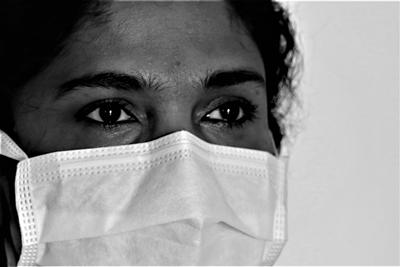Major investment funds research to investigate COVID-19 and ethnicity

A study involving Dr Hajira Dambha-Miller from the University of Southampton to determine the risk of infection and death from COVID-19 in individual ethnicity groups is amongst a number of projects to receive new funding from UK Research and Innovation (UKRI) and the National Institute for Health Research (NIHR).
The six projects to receive total funding of more than £4.3M to improve our understanding of the links between COVID-19 and ethnicity, as well as explain and mitigate the disproportionate death rate from COVID-19 among people from Black, Asian and minority ethnic (BAME) backgrounds, including BAME health and social care workers. These projects build on the UK’s world-class expertise and capability in global heath and infectious disease that has already shaped our understanding of the pandemic and is informing measures to tackle it.
Dr Dambha-Miller, a GP and NIHR Clinical Lecturer in Primary Care within the Faculty of Medicine at Southampton is leading the study with Dr Julia Hippisley-Cox at the University of Oxford. They have received £327,000 in funding to combine over 40 million patient GP records across rural and urban areas of England to create one of the largest COVID-19 cohorts in the UK.
Dr Dambha-Miller and Dr Hippisley-Cox will then describe patterns of COVID-19 disease and death according to ethnicity and use statistical modelling to understand these differences.
“There is an urgent need for more clarity on the issue of ethnicity and COVID-19 related deaths to identify and protect people who might be most at risk from the virus,” says Dr Dambha-Miller. “This study includes an early reporting phase to facilitate the rapid dissemination of its results and identify those most at risk who might benefit from interventions to improve modifiable risk factors.”
Emerging evidence shows that, after taking account of age and other sociodemographic factors, BAME people are nearly twice as likely to die of COVID-19 than white people. There is an urgent need for more detailed data on why COVID-19 disproportionately impacts people from BAME backgrounds, building the essential evidence base needed to make recommendations to decision makers and protect the health of these groups.
UK Research and Innovation Chief Executive, Professor Dame Ottoline Leyser, said: “It is now abundantly clear that COVID-19 disproportionately affects people from Black, Asian and minority ethnic backgrounds. Urgent action must be taken to determine and address the factors underlying this disparity. There is unlikely to be a simple answer and we must consider all possibilities, reflected in the range of projects we have funded, so that we can save as many lives as possible during this pandemic and any future outbreaks.”
Chief Medical Officer for England and Head of the NIHR Professor Chris Whitty said "With evidence showing that people from Black, Asian and minority ethnic backgrounds are more severely affected by COVID-19, it is critical that we understand what factors are driving this risk to address them effectively. The diverse range of projects funded by the NIHR and UKRI will help examine this association in detail, so that new treatments and approaches to care can be developed to target the ethnicities most at risk. This research will have embedded patient and public involvement with Black, Asian and minority ethnic groups at all stages of the research."
